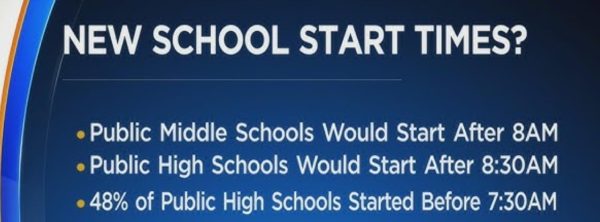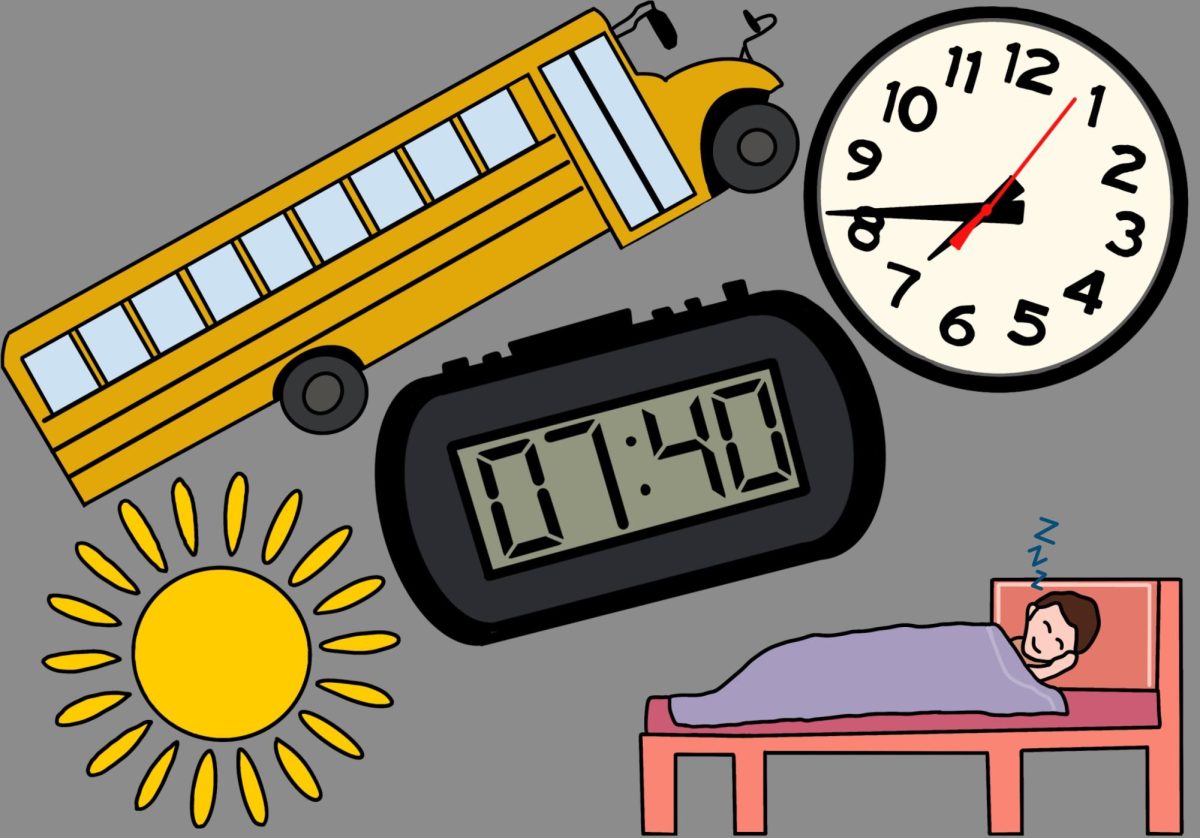In May 2023, Governor Ron DeSantis, as reported in the article titled “CS/HB 733: Middle School and High School Start Times” and published on the website for the Florida Senate < flsenate.gov> , signed House Bill 733 into law, mandating that by July 1, 2026, middle schools in Florida cannot start earlier than 8:00 a.m., and high schools must begin no earlier than 8:30 a.m.
The continuing discussion in Miami-Dade County about moving high school start times to 8:30 a.m. matches major state and national discussions about combining school schedules with the sleep needs for students.
Some people think that starting school later would be a good thing. Theater teacher Ms. Fernandez said, “I’m not a morning person, so I would love this new time. As a mom with young children, it gives me the opportunity to get them ready in the morning and spend time with them.”
Others, however, don’t want to change the school schedule. Sophomore Collin Bonilla said, “Although I might get more time to get ready and sleep, I enjoy training my body and being used to getting up earlier, so I feel like it should stay how it is now.”
A later school start time does have its benefits. “I think a later starting time is great because students will have an improvement in their academics. The brain will be fully awake and ready to store information,” stated sophomore Josue Paz. “With more sleep and time to get ready, people can feel more energized and stress-free,” said freshman Nicole Gonzalez.
“Students will be more focused in class because they wouldn’t be as tired from waking up so early in the morning. Waking up so early in the morning can cause students to zone out or fall asleep in class, so it’s better to get to school later,” stated sophomore Cristian Duarte.
“With more sleep, students would do great,” said English teacher Ms. Ransom, “because extra rest can positively impact student performance.”
Ms. Velazquez, an English teacher, stated, “It could lead to being more productive. Teachers would have more relaxed morning routines which can set a positive mood for the day.”
A later school start time would have some impact on how teachers plan lessons and daily schedules, mostly in the way of finding the right balance between teaching time and student participation. “It wouldn’t cause me any change except for extracurricular activities and rehearsals after school,” said Ms. Fernandez, admitting that extracurricular activities may need to change, even though the school schedule may stay mostly the same.
“I would shorten the lessons to counteract the attention span, mainly in later classes when students start to get tired,” business and technology teacher Mr. Suarez noted, showing the importance of changing ways of teaching to keep students’ attention.
A later start time could also provide teachers with more flexibility in their personal lives. “Many teachers have babies, and this will give them time to take care of issues in the morning,” said Ms. Velazquez. A later start could calm down the morning rush and help educators balance their responsibilities both at home and in the classroom.
On the other hand, some teachers feel that this change could have negative consequences, particularly regarding their work-life balance. “For teachers, it’s negative. It is already a struggling profession. I feel that ending so early is one of the few selling parts,” said math teacher Mr. Pavon, pointing out a later school day could take away one of a teaching career’s few advantages. Many teachers rely on the early end time to manage personal responsibilities.
Whether a later start time will help students get more sleep depends on how they choose to manage their time. Some believe that students will simply go to bed later instead of using the extra time for rest. “They will stay up later. Kids will be kids,” said Mr. Pavon.
However, others argue that the benefits will still be noticeable for those who take advantage of the change. “I think that even if the students decide to stay up or not, that’s on them. And for the students who truly take advantage of it, they will see the difference, and you’ll see it through their attendance and grades,” said sophomore Osmel Diaz.
“It would help them get more sleep because they will be able to wake up later,” said sophomore Angel Hernandez, pointing out that even if bedtime remains the same, students will still gain extra sleep in the morning.
Many students feel that finding a balance between study, free time, and personal time is important, yet the ideal school schedule differs based on personal tastes and goals. Some believe that since students are ultimately responsible for getting enough sleep, the current schedule should not change. “For me, to be honest, I’ll just say to stay with the remaining time because at the end we will just end up having to wake up, and if we want to sleep more, we should just sleep earlier,” said sophomore Montserrat Cerrato.
Others, however, believe that a shorter school day would be more effective in reducing stress and allowing students to better manage their workload. “My ideal schedule would be 8:30 to 1:40, only because we get a lot of homework and get so overwhelmed with all the things they try to teach us. We need breaks and time to relax and really do everything at a pace where we can understand everything, well without having to stress about it,” said sophomore Russell Reyes.
A somewhat later start time without greatly increasing the school day is what a few students want as a solution. “My ideal schedule would be 8:30-2:20, even if this means they must cut lunch time or something. Having to go later and leaving at the same time sounds fair to me,” said Osmel Diaz.














